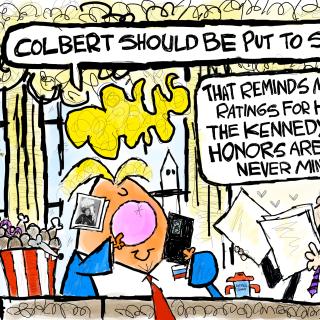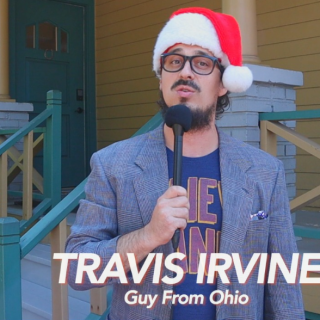What an adorable photo on the cover of this book! The slender, handsome boy is all of ten years old; I have socks older than that. Yet he also looks confident and serious. How would someone so young know about a vanishing country? I quickly found the answer in this delightful read by a gifted writer.
Bakari Sellers is descended from civil-rights-movement royalty. His father is Cleveland Sellers, the man white officialdom has always blamed for the Orangeburg Massacre, a civil rights protest in February, 1968, led by black students against a white-owned bowling alley that would not admit African Americans. (Note that this is four years after the passage of the Civil Rights Act of 1964, which opened public accommodations to all.) South Carolina Highway Patrol officers fired into the unarmed crowd of demonstrators. Cleveland Sellers was shot, three black men were killed, and twenty-eight were injured. Nine defendants were charged; Cleveland Sellers was the only one who was convicted at trial. He served seven months in prison. (Sellers won a full pardon in 1995, and to this day there has been no investigation.) Yet while steeped in the lore of the movement and greatly influenced by his father–his hero–his heritage is no burden. Bakari Sellers lives his own life and tells his own story.
The CNN commentator leads us lyrically through his growing up in Denmark, South Carolina, a tight-knit rural black community where everybody knows everybody. You can clearly hear the country in this book, something you recognize if you grew up in that environment or know someone who has. Indeed, he reminds me of my fella, who was born and reared in Jim Crow Nashville. I sometimes say to him, “You are so country,” and he proudly answers, “That’s right.” Like my fella, Sellers is country and damn proud of it. He has never forgotten where he came from, and you know he never will. Denmark holds fast to his heart.
Sellers describes a town that was incredibly vibrant–“pulsing with energy and black life. . . Denmark had a pickle factory, a Coca-Cola bottling plant, and a furniture manufacturing company.” In Denmark there were successful black businesses and train tracks running in all four directions. It was also home to the historically black colleges Denmark Technical College and Voorhees College, of which his father had once been president. In the Denmark of that era, everyone seemed to be related, and he was known as “Cleveland Sellers’ boy” or “Little CL.”
Folks looked out for each other; they celebrated and mourned together. But the thriving, bustling town Sellers knew as a small boy has all but vanished, decimated by the North American Free Trade Agreement (NAFTA), passed in 1994. The southern textile industry moved from America, jobs vanished, and the people left. The global economy has been especially tough on places like Denmark. There has been no trickling down of economic success. Now it is just one of the hundreds of small, rural, black towns in the South where, in the first quarter of the twenty first century, many people still struggle to obtain what should be available to every American: good jobs, a sound education, nearby grocery stores, decent housing, and affordable and accessible health care.
Sellers describes what appears to have been an idyllic childhood. His two siblings are much older than he, but they loved him dearly and looked out for him. He waxes poetically about pole fishing, leaving with a bucket full of crappie. He and his friends went for long walks, rode bikes and played basketball and the usual childhood games.
His awareness of racially-based social and economic injustice came early. Before he started school, his father often took him to community events, meetings, and conferences about the Freedom Movement held at nearby colleges. These outings made the struggle real for him when it so easily could have been a mere history lesson. Moreover, famous movement figures often called his house to speak with his father. Sellers knew them as real people and fictive kin–e.g., Aunt Kathleen and Uncle Stokely–not the dangerous, anti-white radicals bent on destroying America as they were portrayed by the mainstream media and law enforcement agencies.
Sellers is a graduate of the famous Morehouse College, the prestigious, private, historically black, male, liberal arts college whose most famous graduate is Dr. Martin Luther King, Jr. It was there he was bitten by the politics bug. He ran for and was elected president of the junior class; his buddies managed his campaign. In 2005 while in law school, he ran for the state legislature, defeating an eighty-two-year-old incumbent who had held the seat for twenty-four years! At the time, he was the youngest African American elected official in the United States. Sellers said, “In a photograph taken of me on my first day of the session, I’m looking up at the ceiling. . .I was thinking to myself, I can’t believe I’m here! But by January, I was looking around at members of the South Carolina’s General Assembly and thinking, I can’t believe you’re here . He thought his colleagues had too little interest in people and attended too many social functions. But he soon learned that important deals on programs and legislation were made there. He dived in and quickly learned the ropes. Sellers spent eight years in the South Carolina legislature. In 2014, he resigned that seat to run for lieutenant governor. Sellers campaigned vigorously, and although his Republican opponent won, he garnered a respectable forty-one percent of the vote in a very Republican state.
Sellers also writes about meeting his future wife; the difficult birth of his twins after which his wife almost died; the first year of his daughter, Sadie’s life, as she battled biliary atresia; and his gratitude to the donor family who made it possible for Sadie to be saved. His anger and despair over the massacre of nine and injuring of sixteen blacks in a Bible study class at Mother Emanuel AME Church by a white supremacist in 2015 is still so palpable, I teared up as I read his account. He draws a direct line from the black lives lost during the Freedom Movement to the church massacre and sees that he and his father share a similar kind of grief.
My Vanishing Country offers a surprising admission about the toll of being black in America has taken on the mental health of his family. He has made the connection that mental health issues are hereditary as well as a reaction to events. Sellers has suffered from anxiety since he was eleven when a school friend died. His friend’s death gave Bakari a strong fear of death, and the memory of seeing him in the casket has never left him.
For decades his mother has suffered from sometimes immobilizing panic attacks. In the aftermath of the Orangeburg Massacre, Bakari’s parents moved to North Carolina to stay with his father’s family because they feared for his safety. His mother had a newborn baby to care for, and her parents seemed unwilling to help her. After the trial and imprisonment of her husband, she pressed on as best she could as black women often do, no matter how dire the circumstances. Sellers is convinced that his father suffers from anxiety, too. Cleveland Sellers’ participation in the freedom movement and the danger, violence, and death it engendered has to have had a profound impact on him. Bakari is convinced that his father doesn’t live as large and joyfully as he could because of the memories he carries.
Sellers’ admission of his father’s anxiety validates for me what I have said to colleagues for years. No one can go through what the participants in the Freedom Movement experienced and come out whole. What we see, especially during African American History Month, are the triumphs of the great struggle, the resilience of the black community, and the laws that have made America a somewhat better country. We see the bravery and heroism, especially of those who by chance and circumstance were trust into the national limelight. But for every Thurgood Marshall, John Lewis, Fannie Lou Hamer, and Ruby Bridges, there is an enormous psychological toll that few have publicly admitted or discussed. My Vanishing Country gives voice to that, not with pity, but a clear-eyed examination of the cost of freedom for African Americans.
The handsome, serious young boy on the cover of My Vanishing Country is now a master storyteller and a wise young man with a deep soul.



